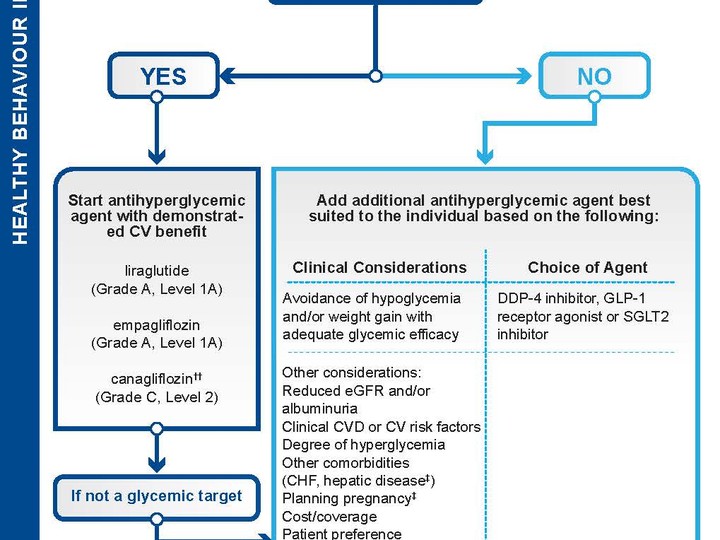obesity in type 2 diabetes
the prevalence of diabetes in canada continues to rise....
dec 10 2019
 4 minute read
4 minute read


many patients react to diagnosis of type 2 diabetes with shame.
getty images
the prevalence of diabetes in canada continues to rise. according to the most recent data from the canadian chronic disease surveillance system, between 2003 and 2014, there was a relative increase of 37.7% in the age-standardized prevalence prevalence of diagnosed diabetes – and in 2013-2014, about 8.1% of the population had been diagnosed with the disease. it is estimated that 9% of these cases are type 1 diabetes – the autoimmune form of the disease that causes the immune system to destroy the insulin-producing cells of the pancreas and requiring the individual to use an external source of insulin for life.
unlike its autoimmune counterpart, type 2 diabetes is a metabolic disorder that occurs when the the body does not properly use the insulin it produces and/or the pancreas is no longer able to make enough insulin. this form of diabetes can also carry a stigma, as it typically affects a stigmatized population: individuals who are overweight or obese. in fact, 80% to 90% of people with type 2 diabetes fall into one of these categories.
this stigma tends to overshadow the seriousness of the disease. the results of an ipsos poll revealed that canadians largely underestimate the risk associated with diabetes – for example, only 40% of respondents identified cardiovascular disease (cvd) as a potential complication. in reality, people with diabetes have a much higher risk of developing cvd than the general population and up to 80% will die from it.

diabetes canada guidelines for management of hyperglycemia in type 2 diabetes
advertisement
advertisement
dr. alice cheng, an endocrinologist at trillium health partners (credit valley) in mississauga and st. michael’s hospital in toronto sees many patients react to a diagnosis of type 2 diabetes with shame. “with type 2, patients blame themselves for eating too much, not exercising enough,” says dr. cheng. “i tell them that genetics plays a very strong role and you can not change your genes. now, let’s see what we can do to control it,” noting that the immediate concern is around blood glucose. “i explain that if we control the blood glucose then it won’t stick to things in your body and cause damage.”
indeed, the diabetes canada recommendations for glycemic control for both type 1 and type 2 diabetes are aimed at reducing the risk of cardiovascular, as well as microvascular complications. for the majority of patients, hba1c ≤7% is the goal. and there are many pharmacologic options available to help patients achieve this goal, in addition to diet and exercise. but according to dr. cheng, the ability to accept and adopt important lifestyle changes and learning how to look at food differently is a protracted process for many patients.
dr. daniel ngui is a family physician and medical director of the fraser street medical clinic in vancouver where a group of family physicians are working in a team to manage chronic diseases, such as diabetes, chronic kidney disease (ckd), heart disease and chronic obstructive pulmonary disease (copd). he explains that in his focus on chronic disease care, obesity can be regarded as a unifying theme.
advertisement
advertisement
he sees an opportunity for utilizing the clinic electronic medical records, a chronic disease coordinator and allied team for a more systematic approach and has begun partnering with pharmacists and certified obesity nurse educators to increase care offered to his patients. “we need to shift from the stigma of diabetes to medicalize obesity and treat it like a bona fide medical condition.”
dr. ngui states. “if we treat bmi like a vital sign, it’s easier to gain permission from patients to talk about a medical issue that has a biologic explanation and may be no fault of their own.” his attention to the importance of weight control is also reflected within the diabetes canada clinical practice guidelines. for example, in type 2 diabetes, the guidelines suggest that a drug’s effect on body weight be one of the factors considered when selecting an antihyperglycemic agent for patients.
reflecting on his learning from the 2019 american diabetes association meeting, dr. ngui notes that new landmark studies once again support the wisdom of the diabetes canada clinical practice guidelines, which emphasize the need to individualize care to the patient. he is referring to recommendations of agents based on the blood glucose level and other health issues like cv disease, patient preferences, any contraindications to the drug, glucose-lowering efficacy, risk of hypoglycemia, affordability/access, effect on body weight and other factors.
advertisement
advertisement
dr. cheng believes these are considerations that should be discussed with patients. “when we are able to describe the benefits of these medications and put them into the appropriate context, that is very helpful,” says dr. cheng. she urges physicians to provide patients with information about all of their treatment options, and avoid the assumption that they will refuse therapies that are injected, for example. “if we can emphasize the benefits to patients, that helps to put side effects and other issues patients may have into context.”
dr. ngui is optimistic about the future of diabetes care. “over the next few years, we will continue to see an evolution in diabetes care, including greater utilization of the chronic care model centered on delivery systems designs, self-management support, decision support, clinical information, the community, and health systems with the goal of helping patients successfully manage their diabetes.”
this story was produced by content works, postmedia’s commercial content division, on behalf of novo nordisk.
